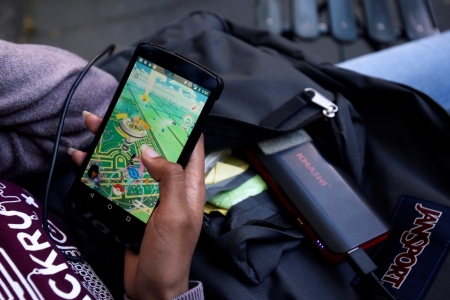Parents Using Smartphones, Watches as GPS Devices to Keep Track of Children

An increasing number of parents in the United Kingdom are buying gadgets and apps that allow them to track their children and know their whereabouts, according to a report.
Sales of devices like GPS satellite tracking watches or tags and their accompanying smartphone apps rose in the run up to the summer holidays, according to The Telegraph.
"In the last year sales of these watches have doubled," Mark Carse, managing director of Trackershop, which manufactures GPS trackers, was quoted as saying. "We experience a surge shortly before summer holidays when families go abroad or kids go on school trips and then in the winter when they go skiing."
The average parent who buys their GPS watch is aged 30 to 45, Bryony Hipkin of WATCHU, which produces GPS tracker watches, was quoted as saying.
She added that some buy the device to listen in to see if their child is being bullied. "They are often bought from the more affluent areas like London, Surrey and the commuter belt."
Jamie Griffiths, founder of Bestie GPS watch, said their sales have doubled since 2016.
"These are the future must-have gadgets for both children and parents," Griffiths was quoted as saying. "We can target parents who need to stay in touch with their children at all times but feel the children are too young to be able to carry a smart phone. The dangers are clear — a child goes missing in the U.K. around every three minutes."
However, a spokesman from a U.K. group, National Society for the Prevention of Cruelty to Children, warned that such gadgets may offer peace of mind "but they shouldn't be seen as an alternative to having regular and open conversations with your child about how to keep safe."
"There's a danger they could lull some parents into a false sense of security about where their children are," he added. "Our advice is that parents talk to their children rather than track them and consider the impact that using monitoring devices could have on their privacy, particularly as they get older."
In the United States, there's an added cause of concern for parents, as surveys show that roughly half of teenagers, the generation known as iGen or Generation Z, are addicted to their cell phones, according to Psychology Today.
"A standard finding in the social psychological literature is that people act in a relatively anti-social manner when their identities are covered up — when they are acting anonymously," Glenn Geher, who conducted a study recently with one of his students in which he surveyed 200 students, said in his article in the Today.
In his study, Geher found that an astonishing 59 percent of them reported having at some point been diagnosed with a psychological disorder.
Danny Huerta, a licensed clinical social worker and vice president of parenting and youth at Focus on the Family in Colorado Springs, Colorado, told The Christian Post earlier that social media and technology trigger the reward circuitry in the brain. And he urged parents to model the kinds of healthy technology use habits that they want their children to emulate.
With such frequent use of technology, "we're seeking authenticity and our brain does not register online things as authentic, and there are a lot of comparisons that take place" within the human psyche, Huerta said. He added that such constant mental comparisons "create a sense of depression, anxiety, stress."





















